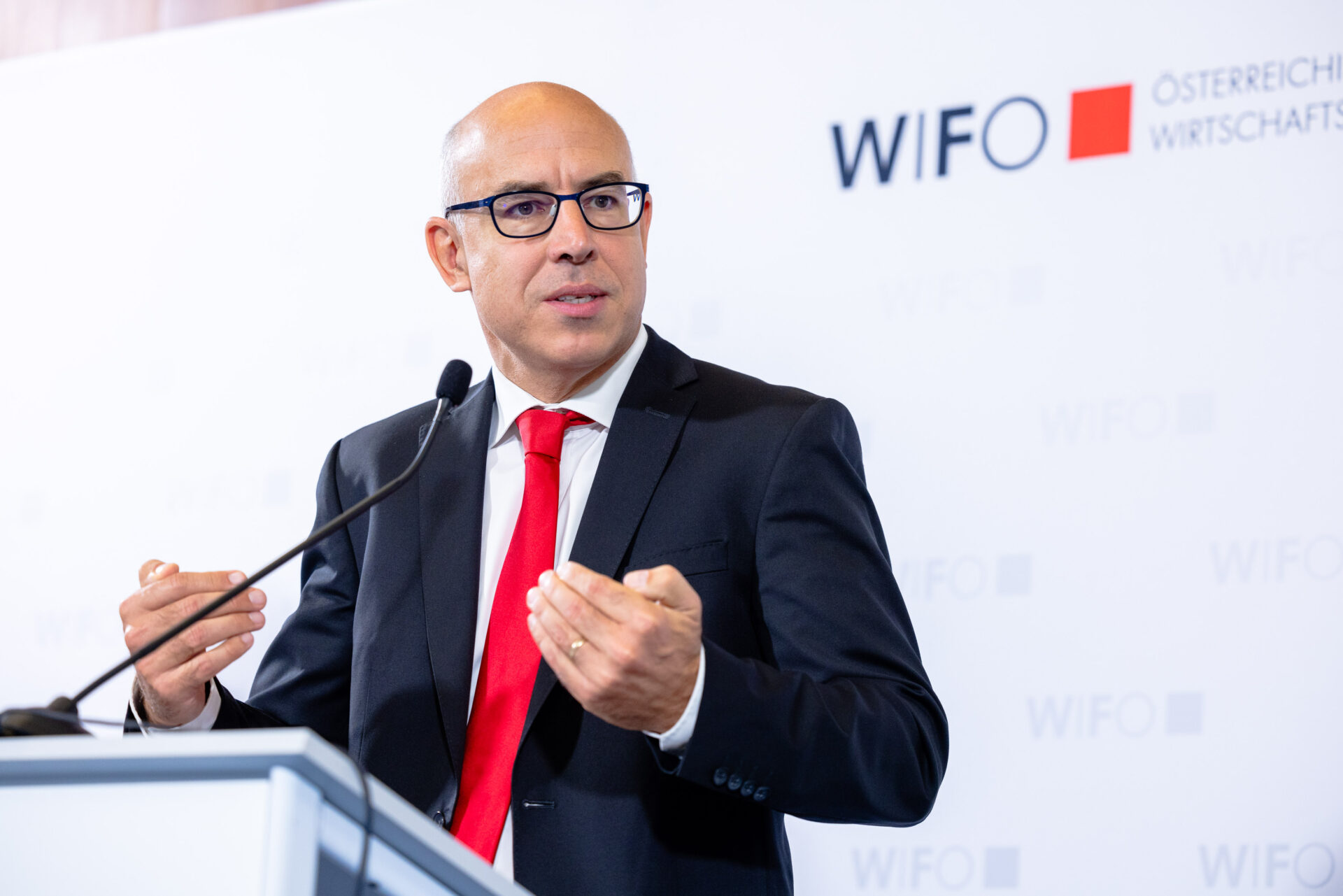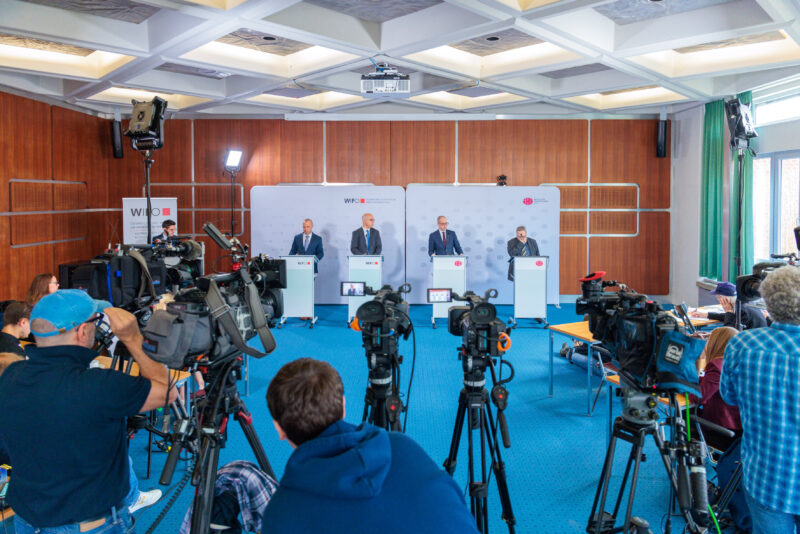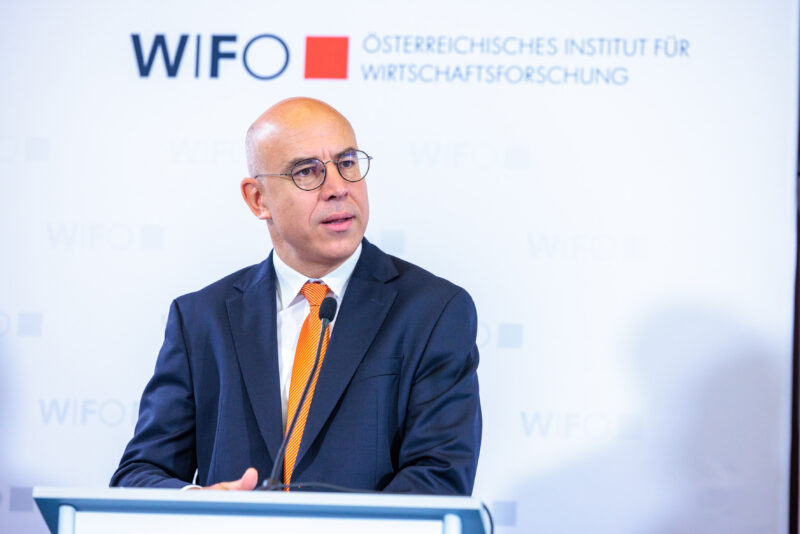
Fiscal Consolidation Hampered by Sluggish GDP Growth
"A reduction of the budget deficit to below 3 percent of GDP in 2025 would further dampen the already weak Austrian economy. Instead of moderate growth, there is a risk of another recession in this case", says Stefan Ederer, one of the authors of the current WIFO Economic Outlook.
Economic policy uncertainty in Austria is currently high. A new federal government faces the task of a significant budget consolidation, the effects of which cannot yet be foreseen. This forecast therefore describes the current economic situation and has been prepared under the assumption of unchanged economic policy conditions. However, a rough estimate has been made of the impact of possible savings in public budgets on economic developments.
The starting position for fiscal consolidation is difficult, especially as Austria's economic output is likely to have contracted again by almost 1 percent in 2024. Industry and construction are still in recession. In addition, private households are unusually reluctant to spend.
There are currently no signs of a turnaround. Business sentiment remains predominantly pessimistic, although there are signs of a slight improvement outside the industrial sector. The expected rise in energy prices at the beginning of 2025, due to higher network charges, has led to a further deterioration of consumer confidence. The global industrial economy and global trade in goods are only gradually regaining momentum. Against this backdrop, the Austrian economy is expected to grow by 0.6 percent in 2025. A slight economic recovery is expected in the second half of the year, which will be reflected in GDP growth of 1.2 percent in 2026.
The persistently weak economic development resulted in a noticeable increase in the unemployment rate to 7.0 percent in 2024. Employment growth will only pick up slightly towards the end of 2025, causing the unemployment rate to rise to 7.4 percent in 2025 before falling back to 7.0 percent in 2026. Inflation slowed to 3 percent in 2024 and will continue to ease over the forecast period, but will still average slightly above 2 percent in 2025 due to the rise in household energy prices at the beginning of the year (2026: 2 percent).
The budget deficit is projected to rise to more than 4 percent of GDP in 2025 without further measures. A sharp reduction in the deficit to the limit of 3 percent of economic output set out in the EU treaties would dampen GDP growth by ½ to 1 percentage point, depending on the nature and timing of the measures.

















